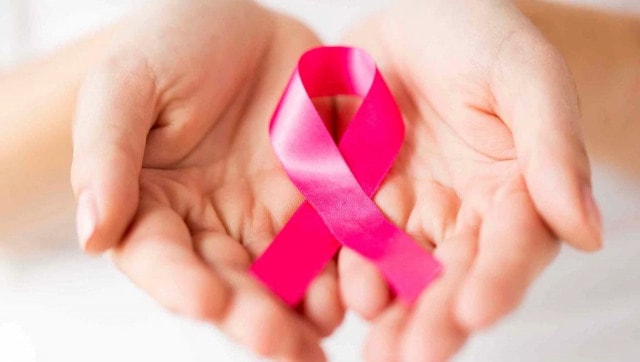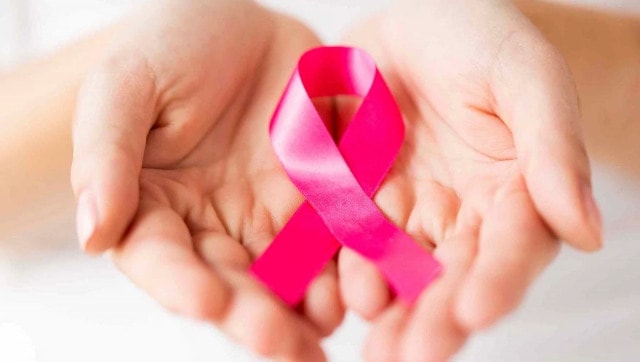Cancer affects dietary habits. Here’s how customised nutrition helps in recovery
For patients with cancer, good nutrition is crucial, as consuming the right staples can help improve treatment outcomes and quality of life

Representational image. News18
Cancer can take a major toll on a person and often affects a person’s physical as well as psychological and nutritional health. The effect of the disease varies from individual to individual depending on the nature of cancer and the patient’s genetic build-up. Nutritional disturbances are common during cancer therapy, due to both the tumour and anticancer treatment. In one study, more than 1 out of every 2 patients with cancer showed nutritional impairment, and nearly 64% of patients exhibited a reduction in weight within 6 months after diagnosis.
For patients with cancer, good nutrition becomes crucial, as consuming the right staples can help improve treatment outcomes and quality of life. Some forms of cancer treatment also work better when the patient is adequately nourished. A well-nourished person thus has a better chance of beating the disease.
Cancer severely affects dietary habits
Changes in nutritional status commence at the diagnosis of cancer and persist during treatment and recovery. Cancer and its treatment can alter many aspects of a patient’s life. It can affect how one eats, and how one’s body reacts to certain foods or uses some nutrients. Unfortunately, conventional cancer treatments such as chemotherapy and radiation have a profound impact on a patient’s nutritional status.
These treatments which are used to kill cancer cells may also harm healthy cells, leading to several issues that impact a patient’s eating habits. During chemotherapy, patients suffer from a variety of side effects that can affect their ability to eat or drink such as lack of appetite, swallowing problems, change in sense of smell and taste, nausea, vomiting, and mouth sores. Radiotherapy-related side effects are also widespread among patients.
Comprehensive and tailored nutrition is the key
It is vital that cancer symptoms and side effects that influence eating and cause weight loss are treated early. Though nutritional support is an essential part of the cancer treatment and recovery process, it is not accessible to all. Weight loss, especially cachexia (muscle wasting due to severe nutritional deficiency) is a well-known complication that not only reduces physical function and quality of life but deepens poor prognostic issues in cancer patients. Since cancer manifests in different ways in different people, the one-size-fits-all approach for nutrition is not an ideal method to treat cancer-related lack of nutrition.
Individualised nutritional strategies for cancer patients help them deal with the wide-ranging impact of the disease. Evidence-based clinical nutrition that is tailored and targeted towards the patient’s specific needs is essential to improve response to treatment, enhance their sense of well-being and aid in recovery.
Advantages of evidence-based nutritional management
Whole-course nutrition management is a systematic and dynamic nutritional intervention that adjusts itself to the requirements of the cancer patient as she/he moves from diagnosis to recovery. It is a proven process that improves the nutritional status of cancer patients treated with chemo or radiation therapy, reduces debilitating symptoms, and improves their quality of life.
However, a customised nutritional diet also needs to be implemented effectively to gain maximum benefit. In this regard, digital therapeutic tools can help an onco-nutritionist determine the most effective nutritional plan for a patient while also monitoring its impact. Sustained nutritional screening and assessment help the nutritionist adjust the input to reduce complications and bolster the patient’s capability to deal with the effects of cancer treatment.
Even short courses (over 12 weeks) of tailored nutritional therapy can help lessen symptoms and side effects by nearly 69% and 65%, respectively. Additionally, data-driven nutrition delivered in this manner also offers flexibility and can be adapted to the changing status of the patient throughout his/her cancer journey. With customised nutritional programmes that are practical and evidence-based, every patient has the opportunity to manage treatment side effects, improve survival, and enhance recovery along with the overall quality of life.
Proper nutrition is the foundation of health and contributes towards effectively managing the effects of cancer and its treatment. The development of treatments with novel modes of action and evidence-based nutrition for cancer have together transformed the oncology care landscape. Tailored and validated nutritional therapy that adapts itself to the changing needs of the patients as they traverse their cancer journey is a step in the right direction towards attaining both treatment and recovery goals.
The author is founder, CEO, Carer. Views expressed are personal
Read all the Latest News, Trending News, Cricket News, Bollywood News, India News and Entertainment News here. Follow us on Facebook, Twitter and Instagram.
For all the latest health News Click Here

